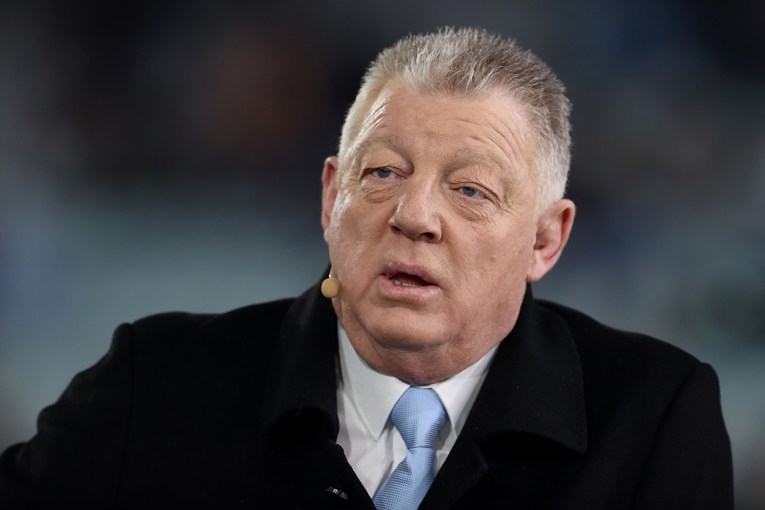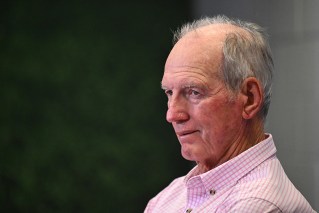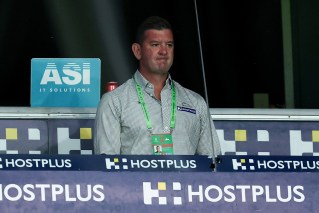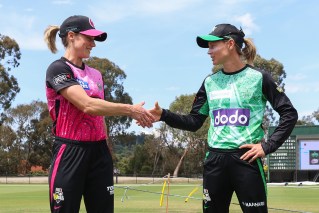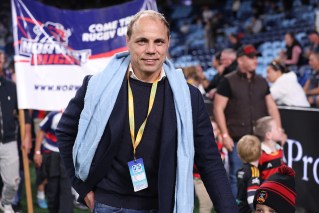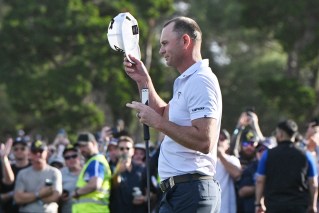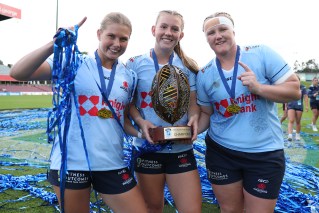The award that plans to rediscover the spirit of Australian sport

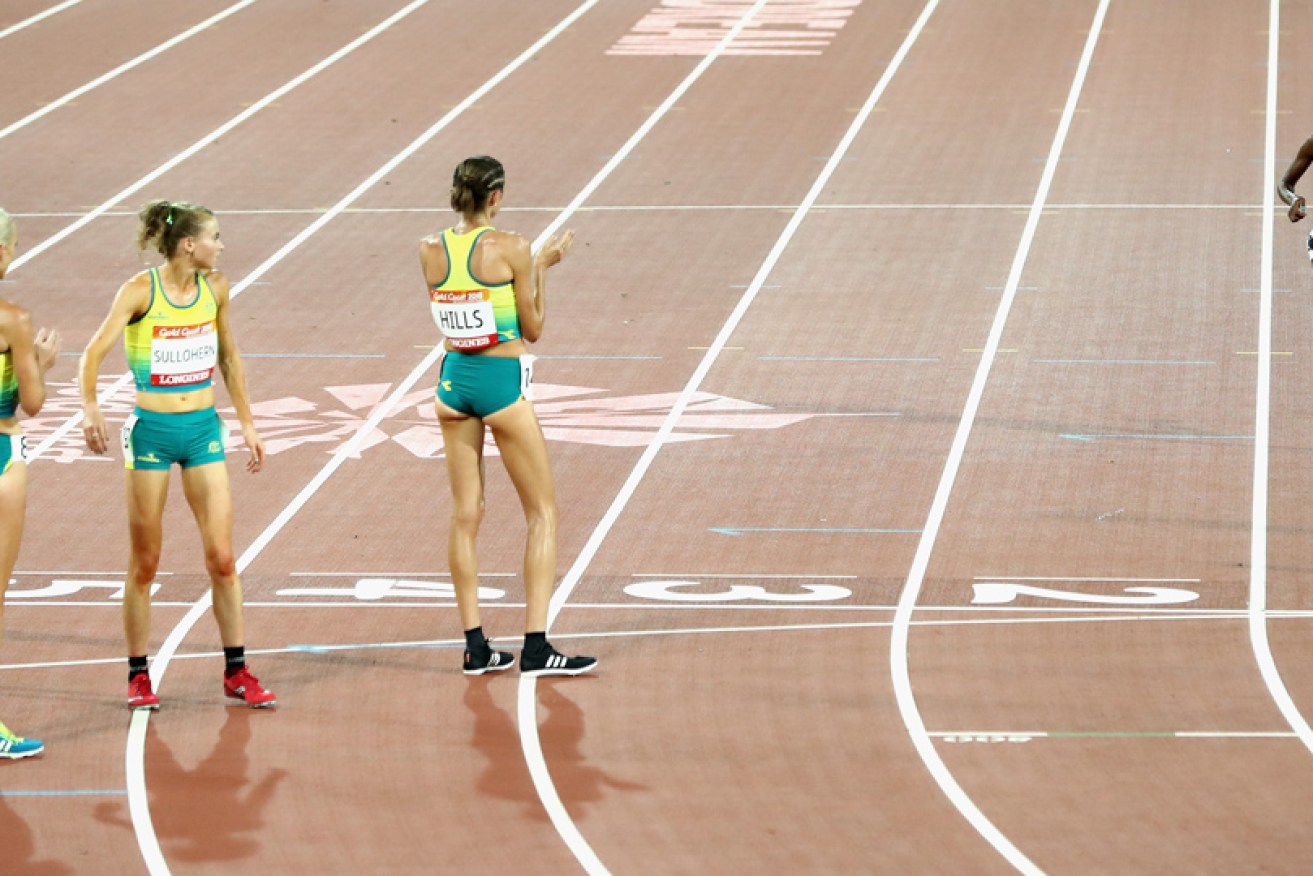
Celia Sullohern, Madeline Hills and Eloise Wellings cheer Lesotho's Lineo Chaka's finish at the Gold Coast Commonwealth Games. Photo: Getty
Have we become a sporting nation of cheats, whingers and sledgers? A new award has been struck by Sport Australia to combat the perception that we’ve become a nation of bad sports.
The Sport Australia Award will be presented at the AIS Sport Performance Awards next month. The award is designed to “highlight the value of integrity, fair play and sportsmanship,” according to the body.
The sandpaper fiasco in Cape Town involving the Australian cricket team was a nadir. It was a blow to the national psyche and how we like to see ourselves, as a nation of sports lovers who play hard but always fair.
From the wayward behaviour of our male tennis stars to the continuing fallout from the Essendon doping scandal, it’s fair to ask – has the spirit got lost in Australian sport?
Rewarding behaviour
Kate Palmer is the CEO of Sport Australia. She told The New Daily the award grew out of a reappraisal of what the mission statement for Australia’s peak sports body should be.

Sport Australia’s Kate Palmer. Photo: Getty
“When we started to discuss what was important to Australia about sport we were at the Commonwealth Games, and saw how our athletes inspired and connected with Australians and genuinely engaged with the public. We thought, ‘This is something that has to be celebrated’,” Palmer said.
“We really need to acknowledge that these athletes are representing everything that’s important about sport, fair play and integrity.”
Such altruistic acts are represented in the four nominees for the award:
- Wheelchair marathon legend Kurt Fearnley won his final marathon at the Commonwealth Games on the Gold Coast, and delivered an inspiring speech on the integration of para-sport at the Games.
- Three Australian 10,000-metre runners at the Gold Coast Games – Celia Sullohern, Madeline Hills and Eloise Wellings – waited together at the finish line for five minutes after the race had been won to cheer and celebrate with the last athlete to cross the line, Lineo Chaka from Lesotho.
- Winter Paralympian Joany Badenhorst was Australian co-captain, flag bearer and a gold medal favourite, but suffered an injury in her final training session that ruled her out of competing. It was a repeat of the heartbreak four years earlier in Sochi, where she was also ruled out due to injury. Regardless of her personal heartbreak, Badenhorst was front and centre in cheering on her Australian teammates throughout the Games.
- Mark Knowles is also a nominee. The former Kookaburras captain had won Olympic and Commonwealth gold medals in a storied career but it is his decision as flag bearer at the Gold Coast Games that sums up his sporting career. After leading his team into the stadium, Knowles made his way to the back of the Australian athletes’ pack, to ensure they could march together as one under the flag.
“I’d been to four Olympic and three Commonwealth Games ceremonies before and I had never seen the flag even though you walk behind it,” Knowles told The New Daily.
“I’m absolutely committed to the idea of one team and being proud of everyone whether they win or lose, so I thought, ‘Why should I walk out the front on my own?’
“I wanted those athletes to see and feel what it’s like to see their national flag. I felt good that night doing it but even better over the next few days as other athletes told me how much it meant to them.”
https://twitter.com/7CommGames/status/981652821144563712
Knowles said it was a tough balance for athletes, and understood how some can make poor choices. He said the key was to know where the line was.
“We compete at the highest level, we play to win and quite often we play right on the edge. The thing is we need to know where that edge is,” he said.
Palmer said while Australian sport’s winning edge mentality remained, it needed to be balanced with the virtues that define true greatness in sport.
“We still want to win, but I think we lost focus of the fact that it’s so much broader than that. Sport’s impact reaches beyond winning and losing,” Palmer said.
“The finalists all represent the notion that an act of sportsmanship is doing something that makes us think about what’s important to us as people and makes you think about what you stand for and what you value.”
‘Spirit is important’
John Bertrand sailed yacht Australia II into history, winning the America’s Cup in 1983. He agrees that Australian sport needs a conversation about the spirit in which we compete.

Australian sailing legend John Bertrand. Photo: AAP
“It’s rightly a hot topic in this country. We saw how Australians reacted to the cricket crisis,” Bertrand told The New Daily.
The America’s Cup winner doesn’t accept that financial pressure and commercial risk is any excuse for poor behaviour.
“Even though the stakes are high, the consideration of playing within the spirit of sport is immensely important,” Bertrand said.
‘It’s pretty basic human stuff here. You want to be able to look your opponent in the eye at the end of a match and shake their hand. Whether it’s a local football match or the World Cup.
“Ultimately, it’s up to the sports people out on the field to do the right thing. They will want to be able to look back upon their careers and feel proud of what they’ve achieved.
“Because in the end, that’s what will matter most.”
The Sport Australia Award will be awarded at the AIS Sports Performance Awards in Sydney on December 13.
